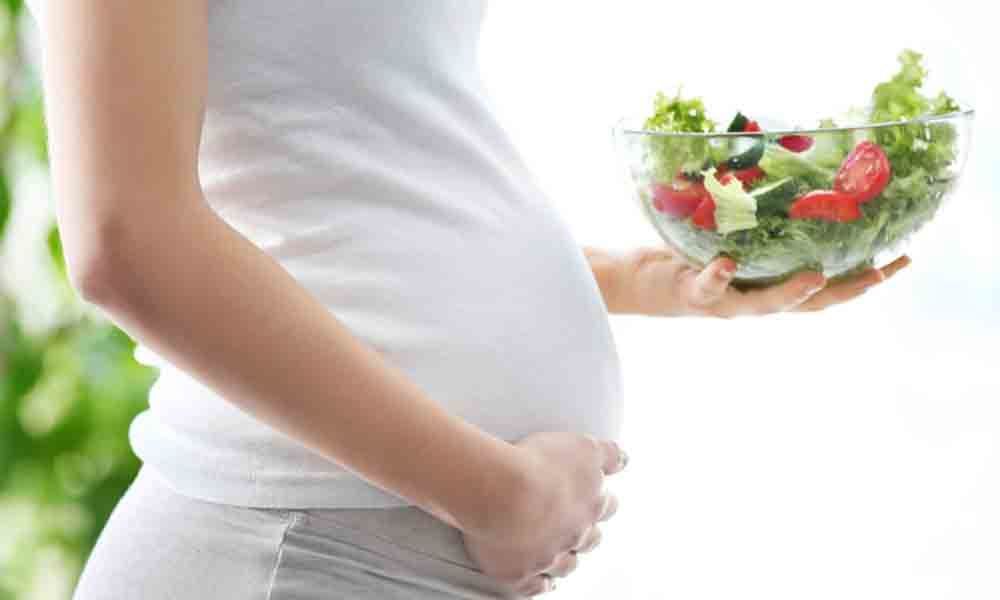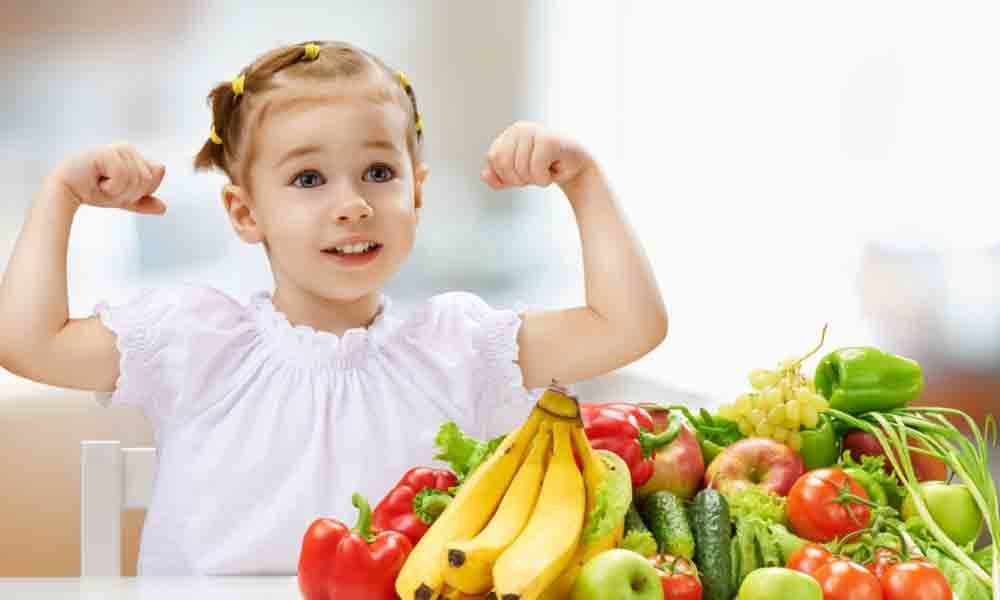6 stages of nutritious life
Good food is the foundation of your life so keep in mind that your nutrition life begins even before conception. Your body’s fuel is food and water and it comes from fats, proteins, and carbohydrates at every stage of life
Satisfaction and pleasure – comfort foods make us feel all of this. Whether you're a man, woman, adolescent, toddler, pregnant woman or a person nearing retiring age, food affects every day of your life. Of course, you spend an inordinate amount of time thinking and planning about food. Don't we all?
I am a nutritionist and let me tell you that what you need is good food that is beneficial for you. Please do not get confused and obsessed with having the 'perfect' food or the 'perfect' body. Remember, food is there to nourish you and satisfy your mind, body and soul. Good food is the foundation of your life so keep in mind that your food life begins even before conception. It is not only the food that is important for the mother, but also the father's because the child carries the genes of both. Haven't you often heard that if the father has diabetes, the child has a chance of getting it too? Or that you're exactly like your grandfather because he loves alcohol and so do you. Thus, your food choices right now too will definitely have an impact on your future generations.
I must shed light on how nutrition is increasingly being recognised as an important determinant which modulates the process of ageing. The day you're born is when your ageing begins. So poor nutrient intake has been implicated for many of the biological changes and increased risk of chronic diseases. Breathe, and don't get scared by the thought of that. Good food life simply means eating fresh, unprocessed, seasonal, regional and organic whenever possible. And most importantly, it must be a good quality produce whether it is fruits, vegetables, seeds, nuts, grains, pulses, dairy, etc.
I have to press on the importance of proper nutrition at each stage of your life and my article will give you the insight you need. Your body's fuel is food and water and it comes from fats, proteins and carbohydrates at every stage of life.
1. Pregnancy: Please remember, that you are not eating for two! On average, a pregnant woman only needs an additional 300 calories for a healthy pregnancy. The additional calories must come from whole foods that are nutritious and beneficial to the foetus. Not only are you what you eat, but so is your unborn child! The myths of how to eat when you're pregnant are limitless; eat more sugar, drink more milk, more fatty food, more… blah…blah…blah… are rubbish and the norm of stuffing yourself when you are pregnant needs to be thrown out the window.
The total weight gain for a healthy and safe pregnancy can be anything between 9 to 11 kgs.
Foods that are high in all nutrients and not only iron and calcium are needed to allow the circulation of blood to carry oxygen and nutrients to the foetus and take waste away from it. As blood volume expands by 50 per cent often you may see a drop in the nutrients of a mother. So, let's try to take in the calories from nutrient-rich foods.
I will take you through what you need to eat during pregnancy and lactation. At this point, the child's growth is completely dependent on your food intake and this will form the blueprint of your child's physical and mental health.
Boost your iron and calcium by adding in leafy greens, beetroot, pumpkin, sesame seeds, prunes, dry figs, and the entire vegetable and plant kingdom automatically prevent constipation and enhancing your immunity.
Combine this with whole grains, millets, rice and pair this with the good quality protein found in daals, pulses, legumes, curd, and eggs or fish, and good fats from ghee and coconut.
Be smart by snacking on nutrient-dense fruits, nuts and seeds.
Do not overdose on protein as the protein requirement for pregnant women is one gram per kilogram. Whereas, for men and non-pregnant women it is 0.8 grams.
Iron and calcium are needed for good lactation. Sources are- fenugreek seeds, fennel seeds, sesame seeds, coconut, almonds, pumpkin seeds, dill seeds etc. So just make a nut and seed mix to have in between meals.
Nausea can be combatted by beginning your day with dry crackers. Sucking and chewing on freshly cut ginger root also aids in preventing nausea.
A complete no-no is raw papaya during pregnancy as it may cause a miscarriage. Go easy on pineapples when you are breast feeding as it lowers the breast milk production.
2. Infancy (0-6): An infant's first year is the time of fast growth. From 0 to 6 months the child should be only fed breast milk.
Boiled and filtered water is introduced only after 6 months.
Most of the calories after 6 months are yet met by breast milk so the mother's food has to be on point. When the time comes to wean, introduce one food at a time, see that the child is comfortable for a few days and then introduce the next. Begin with a mashed soft fruit such as banana, papaya or chickoo and NOT a fruit juice.
By 6 months the body weight is doubled and by one year it is tripled.
Next, are boiled, pureed and easily digestible vegetables like bottle gourd and pumpkin. Slowly introduce a mashed potato with a little A2 cow's ghee or butter. If the child can digest this then introduce grains. Begin with rice and ghee. After that, one could introduce moong daal. Simply make a pureed vegetable khichdi and cow's ghee. At the time of teething one could give them a peeled carrot to chew on and not cut pieces as they could swallow and choke on it.
So, the food of a toddler till they go to school would consist mainly of vegetable soups, a grain and daal. Salt and mild spices like jeera and haldi can be introduced a few weeks after the child is comfortable.
3. Childhood (ages 6-12): The rate of growth is slowing down for the boys and the girls and the nutrient requirements are similar for both. It is only after the age of 10-12 when the nutritional requirements of the boys increase.
You need to be like hawks at this time as the child is being introduced to a larger variety of foods which could be high in refined sugar, fried and white flour rich. Soon they will be hitting puberty and the pre-puberty body is going through hormonal changes.
Biscuits, pastas, noodles, chips, sugary drinks are creeping into their diet. BE SMART and change to healthier counterparts by sneaking in veggies as the children are trying to avoid them.
The days' food could contain fruit, milk, yoghurt, whole grains in the form of roti, rice, idli, dosa, upma, poha, whole grain porridge of millets, accompanied with vegetables in the form of soups, cooked vegetables. To increase the number of veggies, they could be tossed into the daals, rotis, parathas etc. Make them snack on fruits, idli, dosa etc. See that they eat four complete meals so that they are too full to reach out for junk food in the middle of the day.
4. Adolescence (ages 13-19): This is when the body goes through the final growth spurt. The period of transition from childhood to adulthood is called adolescence with accelerated physical, biochemical and emotional development.
This phase involves lateral growth and if you are not careful, it could lead to weight gain, onset of diseases, low semen count in young men, PCOS and PCOD in young women. The rate at which young adults are diagnosed with diabetes is alarmingly high.
Trying to fit into your peer groups leads to eating out, having late nights, etc. If you eat simple home food, you are considered a 'geek' and the trends become to eat oodles of noodles. Additions of these unhealthy foods create havoc in the mind and the body. It lowers performance and efficiency, causes mood swings, weight gain, acne, blotchy skin and constipation lowering overall immunity. Further, energy drinks which are packed full of caffeine have become a part and parcel of being a teenager.
It would be great if we could keep them to 4 meals a day and 1 fruit in between as a snack. For the first meal, as breakfast, they could have 2 fruits, idli or dosa with chutney and sambhar, uttapam, pongal with chutney, or scrambled eggs with toast butter. At lunch, they could have a vegetable with roti/rice with daal/curd/fish. In the evening, the snack can vary from fruits, vegetable sandwiches, a handful of salted nuts, a glass of milk with nut powder, a bowl of yoghurt etc. Finally, the fourth meal, which is usually dinner and must be the lightest meal of the day, they should have a balanced meal. The meal should have plenty of vegetables. Vegetable curries with roti or rice or sambhar with roti or rice. It can be accompanied by rasams or vegetable soups.
5. Adulthood: Let's make adulthood our wellness years instead of illness years by simply gaining positive health. So eat foods that are advantageous for you keeping your mental and physical levels at optimum conditions. You are what you eat and by now we should be eating a diet which consists of vegetables, fruits, whole grains, pulses, nuts, seeds and other whole foods. Working till late and meeting social obligations tend to zap our energy causing us to turn to unhealthy comfort foods. Hence, we need to be more vigilant about what we put into our bodies and realise that our bodies are temples.
Try to eat on time and if to have to eat late, eat a smaller portion. Also try to stay away from ALCOHOL. All it does is slower your reflexes and deadens your mind! Swap it for a plain soda instead.
6. Geriatric: This is our second childhood. However, as we get older we face problems beginning from digestive issues, reduction in appetite and physical activity. Retirement from work and loss of peers leads to a feeling of gloom and doom. And food is the last thing on your mind. Let's be smart and keep immunity and energy levels as high as possible. So be sure not to skip any meals and see that at least three meals have a balance of all the nutrients- your proteins, fats and carbohydrates. One-pot meals like khichdis, porridge, idli with sambhar and chutney, pongal, bisibelli bhaat, upma, poha, daal with rice, curry with rice, curd with rice etc., all paired with a soup and some bread butter.
Some ideas:
1. Soup + vegetable cutlet
2. Nachni/oats porridge
3. Curry + rice
4. Vergu + rice + curd
5. Nachni khicchu
6. Methi salad
7. Sambhar + rice/neer dosa














